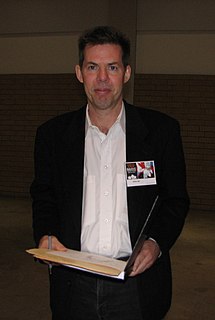A Quote by Bill Capodagli
The best ideas can come from anyone within an organization. Leaders must remember that if they want employees to embrace a new organizational "Dream" or strategy, they need to include them and seek their ideas. Creativity is NOT just for the R&D department.
Related Quotes
...remember the dangers of the New Groupthink. If it's creativity you're after, ask your employees to solve problems alone before sharing their ideas. If you want the wisdom of the crowd, gather it electronically, or in writing, and make sure people can't see each other's ideas until everyone has had a chance to contribute.
Creativity is the generation and initial development of new, useful ideas. Innovation is the successful implementation of those ideas in an organization. Thus, no innovation is possible without the creative processes that mark the front end of the process: identifying important problems and opportunities, gathering relevant information, generating new ideas, and exploring the validity of those ideas.
I do think that we'd do better if we just offered all the bureaucrats in the Department of Education very attractive early retirements. But whether you want to abolish the department is another matter. Maybe there's room for recruiting a lot of visionary people who would do very good things: develop new techniques, new ideas, foster innovative models, disseminate those ideas.
Cities need old buildings so badly it is probably impossible for vigorous streets and districts to grow without them.... for really new ideas of any kind--no matter how ultimately profitable or otherwise successful some of them might prove to be--there is no leeway for such chancy trial, error and experimentation in the high-overhead economy of new construction. Old ideas can sometimes use new buildings. New ideas must use old buildings.
In terms of writing and developing, TV is very open because TV needs stories. They need new pitches, and they need new ideas. They don't always take the risk for new ideas, but they are certainly open to it. They can't have enough people come in and pitch to them. It doesn't matter how they look or what gender they are.
There are more ideas on earth than intellectuals imagine. And these ideas are more active, stronger, more resistant, more passionate than "politicians" think. We have to be there at the birth of ideas, the bursting outward of their force: not in books expressing them, but in events manifesting this force, in struggles carried on around ideas, for or against them. Ideas do not rule the world. But it is because the world has ideas (and because it constantly produces them) that it is not passively ruled by those who are its leaders or those who would like to teach it, once and for all, what it must think.
We sift reality through screens composed of ideas . (And such ideas have their roots in older ideas.) Such idea systems are necessarily limited by language , by the ways we can describe them. That is to say: language cuts the grooves in which our thoughts move. If we seek new validity forms (other laws and other orders) we must step outside language.
Most people believe a new idea must be fully baked and ready-for-primetime. That is like saying a newborn child should have a college degree and be self-sustaining on day one. Like children, new ideas need to be nurtured, shaped, and protected. People often hold back ideas since they are not ready to defend sharp criticism. Companies that celebrate "creative sparks" and reserve judgment while ideas mature are the ones that enjoy significantly more creativity and innovation.
Cat-Ideas and Mouse-Ideas. We can never get rid of mouse-ideas completely, they keep turning up again and again, and nibble, nibble-no matter how often we drive them off. The best way to keep them down is to have a few good strong cat-ideas which will embrace them and ensure their not reappearing till they do so in another shape.
Ideas come mostly bottoms-up. They come when you have a free flow of ideas and you have people able to combine multiple ideas into one concept... And you've got to have competition, too. You've got to say, 'We're going to have 10 different ideas, nine of them are going to fail, and the one that does the best is going to move forward.'
Ideas are the engines of progress. They improve people's lives by creating better ways to do things. They build and grow successful organizations and keep them healthy and prosperous. Without the ability to get new ideas, an organization stagnates and declines and will eventually be eliminated by competitors who do have fresh ideas.


































